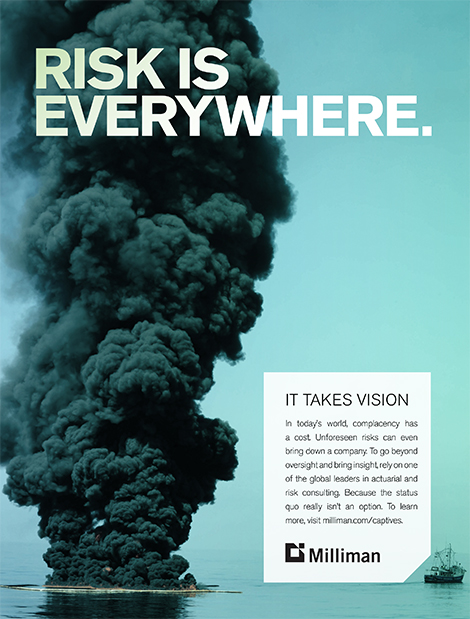Mutual insurers are in a prime position to capitalise on changes in the traditional reinsurance market, found Willis Re in a recent report.
Mutual insurers are in a prime position to capitalise on changes in the traditional reinsurance market, found Willis Re in a recent report.
The 1st View April renewals report found that changing distribution models, coupled with a flood of alternative capital, have left many reinsurers concerned over both their existing portfolios and their access to future growth.
These changes in the market have provided mutual insurers with the opportunity to strengthen their existing relationships with traditional reinsurers to and, also forge new partnerships.
Gregor Pozniak, secretary general of the Association of Mutual Insurers and Insurance Cooperatives in Europe, explains that a mutual or cooperative insurance company is simply an “insurance undertaking that is owned by [its] clients”.
According to Willis Re, as mutual insurance companies are ultimately owned by their policyholders, they have less access to other forms of capital, and as a result, are often reliant on reinsurance to provide them with additional capital to deal with catastrophes and other large losses.
Speaking in April, John Cavanagh, CEO of Willis Re, said that the “seismic changes occurring in the traditional reinsurance market are clearly favourable for mutual insurers”.
As interest in the industry grew, Guy Carpenter & Company introduced its own mutual company specialty practice, which focuses solely on the unique needs of mutual insurance companies.
In a recent statement, Guy Carpenter explained that mutual insurance companies are currently faced with competitive pressures, limitations on raising capital, the implementation of new regulatory and compliance guidelines, and increased demands for actuarial services.
John Haldeman II, executive vice president of the mutual company specialty practice at Guy Carpenter, said: “The new practice provides solutions for all these concerns … The members of our practice provide an unpanelled depth and breadth of knowledge about the market and deliver Guy Carpenter’s full suite of state-of-the-art products and solutions to clients who are seeking new avenues of growth and profitability.”
To facilitate the growth of the mutual and cooperative insurance market, a number of associations have been set up. Martin Shaw, chief executive of the Association of Financial Mutuals (AFM), explains that the association’s chief aim is to promote the value of mutuality and the interests of its members.
The benefits of becoming a part of a mutual insurance company are many, according to Shaw. “We have undertaken extensive research, all of which demonstrates that people get a better deal with a mutual. Customers enjoy much better standards of service, and fairer claims handling.”
“Because we don’t have to syphon money off to pay shareholders, we can afford to pay better investment returns, or to charge less. Because we aren’t fixated by the quarterly reporting cycle, we can run our businesses for the long-term, and in the best interests of our customers. And most importantly, people trust mutuals at a time when the general reputation of financial services remains in the gutter.”
Another benefit that Shaw notes is the sheer scope of companies and organisations that can participate in a mutual arrangement—stating that there are no obvious barriers, with health services, retailers, football clubs and even school participation.
“There are a million people in the UK employed by mutual across a range of industries. Now [the] government is looking to explore how some departments can be mutualised, even the Post Office. Mutuals are very much in vogue and enjoying real interest and growth.”
Riding out the storm
Over the last five years, the insurance market has been subdued, as many bigger insurers have focused on bolstering their balance sheets instead of competing for new business—with many people highlighting mutuals as the fastest growing part of the insurance sector, says Shaw.
He adds: “Mutuals tend to be well capitalised, which meant they rode out the recession well, and in the last five years we’ve seen growth in the sector of over 50 percent. “
Pozniak agrees that the sector is definitely becoming more popular, not least as a consequence of the financial crisis.
He says: “A recent study by the International Cooperative and Mutual Insurance Federation has proven again that in the past couple of years the mutual insurance sector in Europe has gained market share.”
“In times of crisis, the cooperative and mutual movement has a strong argument. It stands in contrast and offers an alternative to profit-maximising models, eg, in investment banking, but also in insurance where exchange-listed insurers have to produce higher earnings per share every quarter and therefore look at short-term balance sheet visible gains … Mutual ideas in a wider sense are strong in times of crisis.”
But despite the clear benefits of a mutual insurance arrangement, Shaw doesn’t always recommend them as the most suitable option. He explains that while the AFM sees real value for mutuals, they may not always be the answer.
“Where a mutual wins out is the ability of the owners to have a clear say in the running of the business, and to share in its success. For example, when the livery companies in London wanted to find a new solution to their insurance needs, they elected on a mutual (a member of AFM), because this would dramatically reduce the price, and allow them to benefit from significant profit sharing.”
Impediments when it comes to setting up a new mutual insurance company are also a challenge, which could ultimately deter potential insurers from pursuing the option.
Shaw explains: “The challenge for many people is that the barriers to setting up a new mutual are high—the initial capital requirement in particular is an obstacle for setting up a mutual in the retail environment as you need to create capital from members before you have them. I tend to find people look to establish cooperatives or credit unions more readily as they have low thresholds for start-ups.”





